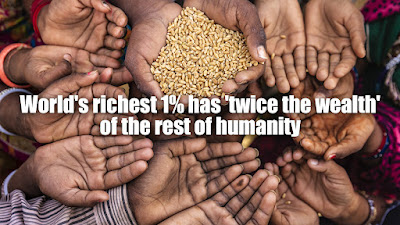Saturday, November 27, 2021
"From Economic Collapse To Moral Collapse; California Flash Mobs Spread Across Nation; Holiday Danger"
"Market Risk is Rapidly Rising - Inflation has Wiped Out All Dollar Bargains"
Carl Sagan, "The Pale Blue Dot"
"A Look to the Heavens"
Read Online: The Poet: T.S. Eliot, "Four Quartets"
“How Are Things Going, Joe?”
The Poet: Jane Hirshfield, “The Task”
"Curveballs..."
"It'll Do..."
"Inflation..."
"Martin Armstrong Warns: 'America Is Under Attack By Marxist Globalists'"
"Back in July, legendary geopolitical and financial cycle analyst Martin Armstrong boldly said, “The system has come to an end.” What are we seeing now? There is massive inflation, huge defaults of debt in China, a badly broken supply chain and a hostile government against “We the People” here in America. It sure looks like the end of this system is near.
Armstrong contends it is not an accident that all this is happening now to the United States because Marxist globalists want to overthrow our Constitutional form of government. Armstrong explains, “This is getting to be really absurd. Biden is the perfect President. I warned that this election had nothing to do with Trump versus Biden. It was Trump versus a foreign entity that was trying to take over the United States. Biden is absolutely the perfect President. They got their wish. They got somebody in there that really would not be able to figure out left from right.
I am not making derogatory statements against him. This isn’t even Biden’s agenda. You are lucky if he even understands what’s going on. It’s the people behind him. It you look at his polls, they are down to 33%. A politician wold normally care about that. You don’t see any change because he’s not the one doing this. They know he’s just a place holder. They are just moving their agenda through - period. The United States is being orchestrated from Geneva.
All this ‘Build Back Better’ stuff was a slogan created at Davos. The United States is under attack from a foreign entity.” Armstrong says his predictive Socrates computer program does not see the Marxist globalists succeeding. Armstrong says, “They think they can take over the world and create this fictional wonderland of Marxism. It’s not going to work. Our computer is showing that they have failed. In 2022, this whole thing is going to start blowing up. Bill Gates actually said that the vaccines don’t work. He said we are going to have to create a new sort of R&D. There is too much evidence now that the vaccines do not prevent you from getting Covid or spreading it. Data coming out of Israel shows the majority of people vaccinated are the majority of the people that are dying. Gates is being confronted with this behind the curtain.”
Armstrong says the Marxist globalists are trying to create a Great Depression. Why? Armstrong says, “The reason why they are trying to create a Great Depression is they are now desperate. "They created, in my opinion, this virus that numerous people I know behind the curtain were told a virus was coming. I think it was planted. I think it was created by a lab in China. This is all total B.S. It’s being used mainly to prevent people from traveling.”
Armstrong also says the Marxist globalists have a plan to default on all debt. Listen to how they are going to sell this to the public. Armstrong says, “They pretend they care about you. You won’t own anything. We are going to eliminate all mortgages, all credit card debt and you are going to be happy. Why? Because that’s the cover for them to default. They can’t default without wiping out everybody’s pension fund.”
Join Greg Hunter on Rumble as he goes One-on-One with Martin Armstrong, world renowned geopolitical and economic cycle expert. (What is written above is only a fraction of what is in the 61 min. interview.)
Friday, November 26, 2021
"What’s The Deal With Black Friday? Markets Crash"
"We Have Big Trouble Coming; Credit Cards Propping Up Economy; Losing Control Of Markets"
Gregory Mannarino, "Interview: A Medical Dr. Blows The Roof Off Of Everything: Dr. Harding"
"Streets of Philadelphia, Kensington Avenue, Thanksgiving Day 2021"
"Panic And Chaos Fast Spread As A New Covid Strain With Extremely High Number Of Mutations Emerges"
"Why the ‘Make America Worse’ Bill Will Lead to Higher Inflation"
Gerald Celente, "African Virus Variant Plunges Market, Worst Is Yet To Come"
"A Look to the Heavens"
"Perhaps Everything Terrible..."
“Are You Sane?”
Gregory Mannarino, "Alert! Alert! Banks Warn On New Variant; An ER Dr Comes Forward to Tell The Truth"
"No Victms..."
"Give Thanks for the One Percent"
BALTIMORE, MARYLAND – "This week, a hush falls over headquarters. Office phones ring with no one to answer them. But we continue our lonely vigil, watching over the world of money… dumbstruck by the complex majesty of it… and a little bummed out by the scammy fraud perpetrated by Federal Reserve economists
We drove out of the city to look at a colleague’s new house. The house is on farmland in one of the most attractive suburbs, just 15 minutes from the heart of Baltimore It is a huge, rambling affair built in the 1870s, with a large wing for servants added in the 1920s. One of Baltimore’s leading lawyers had owned it. His widow lived there until she died in her 90s Now, under a new owner, the house is about to get a major facelift. New wiring, new plumbing… walls torn down… a new master suite… an addition for utilities… a four-car garage… a toolshed transformed into a “man cave.”
No Holding Back: Our friend is not one to hold back. He lives large… no matter what the cost. The house already has more than 9,000 square feet of space. When he’s finished, it will probably have more than 10,000. “You are aware that this is going to cost a fortune,” we said to the new owner.
“Yeah. How much do you think it will cost to fix this place up?” “Five million?” “Oh, and I’m going to tear up all the floors and put in radiant heat. And a new kitchen. “Six million? This is crazy. It’s a nice house. Why not just live in it as it is? All you really need to do is to put in a new bathroom. Okay, maybe a new kitchen. But why buy a nice old house just to tear it up?”
"You are such a penny-pincher. What is money for, if you can’t use it to build the house you want where you want it? I don’t get any pleasure out of looking at my account balance. I’ll get real pleasure for many years out of this house. “I don’t mind spending money. It’s fun. I’m not like Warren Buffett. And I’m not like you. I don’t want to live in a simple house in Omaha all my life. And I don’t care about creating a family legacy. I’m going to enjoy my money.”
Economist’s Dream: Our friend is an economist’s dream. He consumes mightily. His consumption makes him happy. And it sets in motion hundreds of wheels that turn toward more getting and spending all over Baltimore, the U.S., and the world.
The Financial Times elaborates: "Consumption is the purpose of economic activity and allows us to meet our material aspirations in the pursuit of happiness. The valid concern about household debt is therefore not that it is fuelling consumption, but that it might detract from future expenditure because, for prudent families, debt service gets in the way of other spending. The elderly and the dead, who realized their property assets, tend not to spend so much.
Naturally, there are legitimate concerns about the sustainability of the recovery, but most are not related to consumption… Consumption growth is therefore necessary for the sustainable longer-term growth that people of a puritanical bent so desire… The alternative to the unexpected boost to consumption this year would have been much worse: continued stagnation, higher unemployment, lower incomes and worse public finances."
So, as the year’s end approaches, we should resist the puritan within all of us. Let us celebrate consumption…
In Honor of Spendthrifts: Our friend is doing his part. The marble for his new countertops will be cut in Italy… making employment for stonecutters and shippers. Carpenters will spend months knocking together frames and staircases. Heating and air-conditioning specialists, architects, wallpaper salesmen, decorators, roofers, electricians, plumbers, surveyors – all will be contracted to help our friend build the house of his dreams..


































